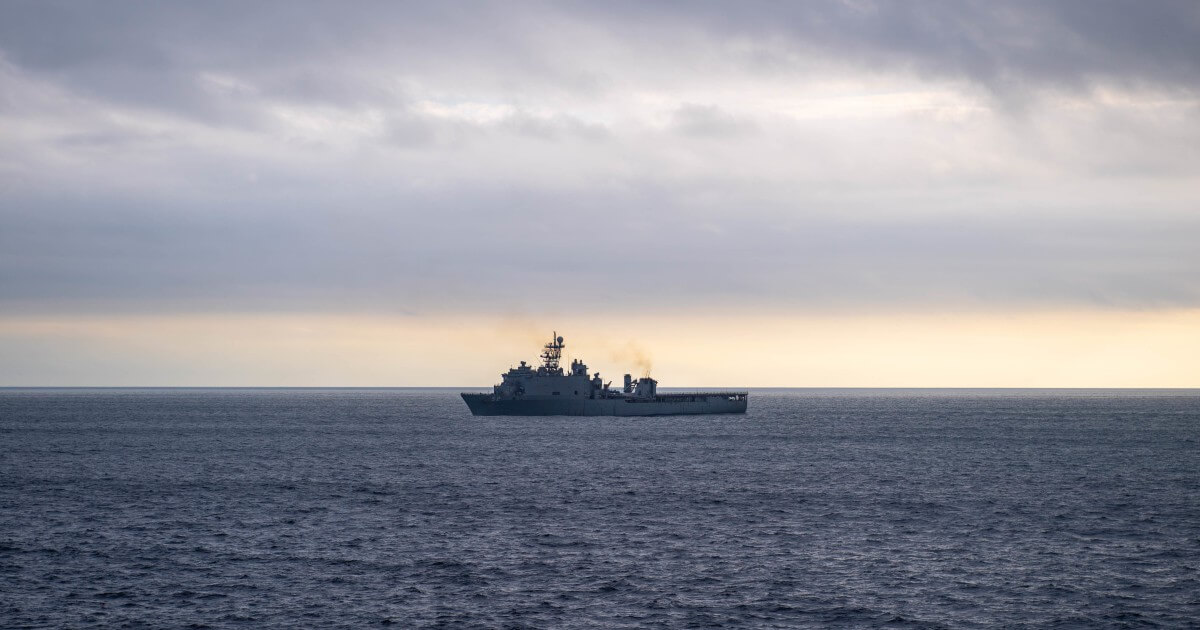The United States (US), Israel, Bahrain, and the United Arab Emirates (UAE) on Thursday conducted joint naval drills in the Red Sea to counter Iran’s actions in the region. The five-day exercise is the first time the four countries have publicly acknowledged participating in military drills with one another.
The drills also come over a year since the UAE and Bahrain normalised ties with Israel by signing the landmark Abraham Accords.
Also Read: Israel, US, UAE FMs Meet in Washington, Discuss Iran, Palestine
A statement released by the US Naval Forces Central Command (NAVCENT) said the exercises included training aboard the USS Portland transport ship and focussed on “search and seizure” tactics. “Maritime collaboration helps safeguard freedom of navigation and the free flow of trade, which are essential to regional security and stability,” NAVCENT commander Vice Adm. Brad Cooper said
NAVCENT consists of the US Navy’s Fifth Fleet that conducts operations in the Red Sea, Persian Gulf, Arabian Sea, and the Indian Ocean regions. The three critical choke points at the Hormuz Strait, the Suez Canal, and the Strait of Bab-el-Mandab also fall under its area of operations.
However, the main focus of the exercises was related to countering Iran’s presence in the region, especially in the Persian Gulf. A senior Israeli naval official told reporters on Thursday that the joint show of force was meant to “push back” Iran’s presence in the nearby waters and ensure that other countries’ “freedom to sail” is not harmed. “In order to do that, we need to make our partnerships tighter,” he asserted.
Furthermore, the officer noted that the aim of the drills is to extend the range of the navies’ operation, prevent “naval terror,” and, “retaliate […] against what the Iranians are doing.”
Iran has mounted attacks on ships in the region through the Quds Force of its paramilitary Islamic Revolutionary Guard Corps (IRGC) and its regional proxies. Iran has been blamed for hijacking ships off the coast of the UAE, engaging in confrontations with the US Navy in the Persian Gulf, and increasing attacks on Israeli ships in the region.
Read Also: Azerbaijan is the New Front in the Expanding Iran-Israel Shadow War
The Iran-Israel “shadow war” has increasingly taken a naval dimension, as both sides continue to engage in tit-for-tat attacks in the Red Sea-Persian Gulf-Gulf of Oman-Arabian Sea regions. In March, an Israeli cargo ship was badly damaged by a missile in the Arabian Sea in a suspected Iranian attack. The following month, an “unknown explosion” occurred on an Iranian ship that was believed to be a base for Iranian paramilitary forces, in the Red Sea. The most serious attack came in July, when an oil tanker owned by an Israeli businessman was attacked in the Gulf of Oman by drones, killing two crew members; Iran was later blamed for the attack.
The exercise is also meant to strengthen Israel’s defence capabilities in the region, especially as it has threatened to take military action against Iranian nuclear facilities. Earlier this month, Israeli army chief Gen. Aviv Kohavi said that Israel’s military was “speeding up the operational plans and readiness for dealing with Iran and the nuclear military threat.” Israel vehemently opposes Iran’s nuclear programme, viewing it as an “existential threat” and in this regard, has rejected any deal between Iran and world powers.
The drills were held after Iran recently agreed to resume nuclear negotiations with world powers in Vienna on November 29. Earlier this month, Iran’s top nuclear negotiator, Ali Bagheri Khan, said that Iran was willing to join talks, provided that the US commits to never leaving the nuclear deal once signed.
Officials from Iran have been holding intense negotiations to restore the landmark 2015 nuclear deal, with their counterparts from Britain, France, Germany, Russia, and China in Vienna, Austria since April. However, talks broke off abruptly in June following the election of new Iranian President Ebrahim Raisi. World powers have been frantically engaging with Iran to restart nuclear negotiations since then.

